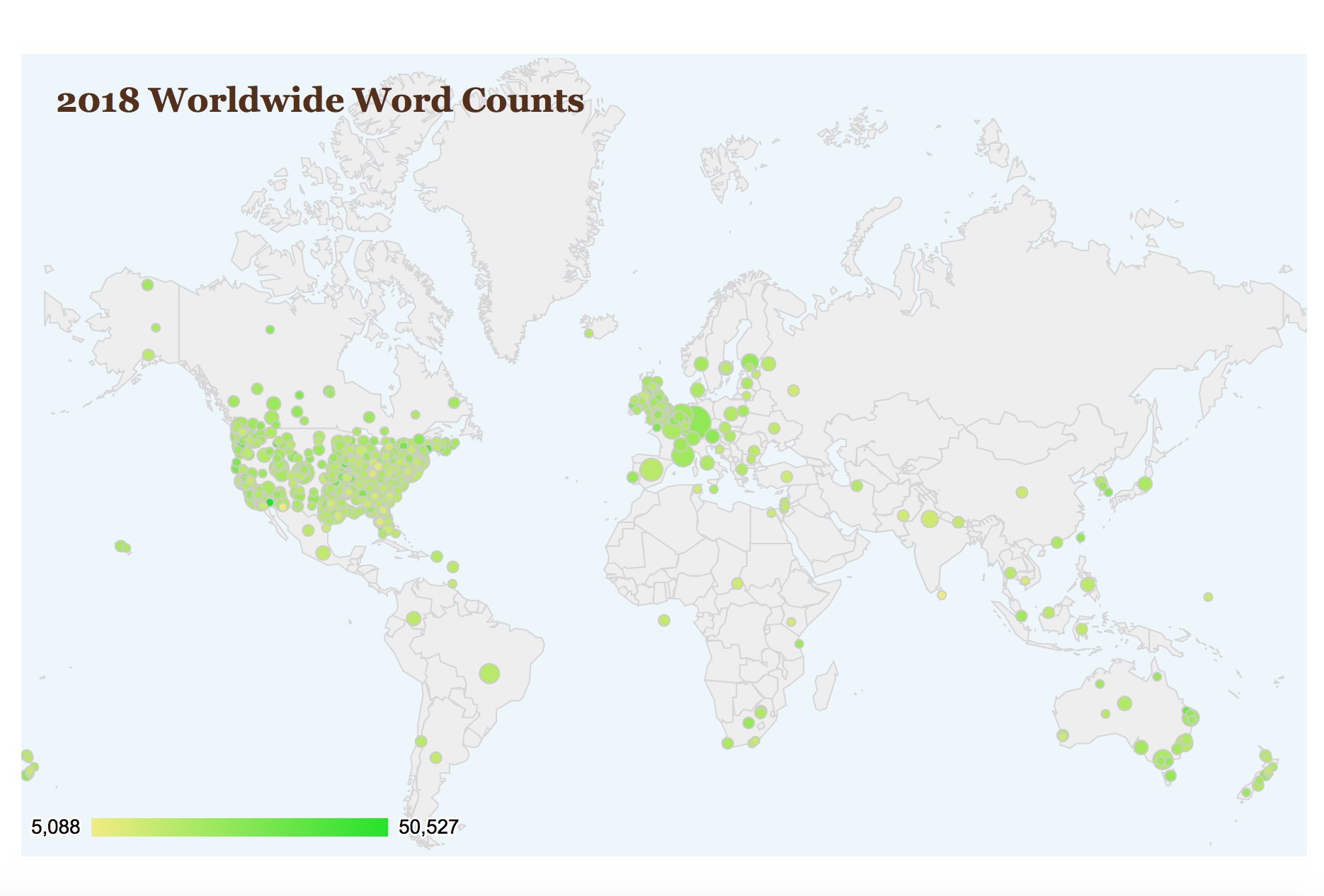During the end of the year, people begin sorting through their bad habits so they can turn one into a good habit, creating a New Year’s resolution. Others make resolutions to improve current habits; some of the typical goals are losing weight, quitting smoking and saving money. By the end of January, many people end up forgetting about them and comfort themselves by saying, “Next year!” At least you tried, right?
For those of you who want to try a different type of resolution this year, you could always orient the goal toward a hobby, passion or career. Take writers, for example.
While writing can be a relaxing hobby for some, it’s a career choice for others, and even though it might seem like writers should love to write any time, any day, it’s not always their constant interest. If you’re a writer, creating one or two New Year’s resolutions can strengthen your writing and help build your portfolio.
Here are nine New Year’s resolutions for writers.
1. Write a certain amount daily, weekly or monthly.
Many writers have used NaNoWriMo to keep track of how much they’ve written and how much more they have to write to reach their goal. If you’ve never heard of it or haven’t tried it, it’s a great platform to use if you’d like to try this resolution.
Of course, every writer has probably set a word count they’d like to reach over a certain about of time, but it’s not always the easiest goal to accomplish. Achieving this resolution would bring you closer to finishing your dream novel, so the writing will be worth it.
2. Create short-term goals.
As a writer, you can create various short-term goals that will help you achieve long-term goals, such as a published novel. Short-term goals can range from writing a set amount each day to doing research weekly for your future novel.
It takes small steps to accomplish big dreams, and if you want a novel or other writing project completed, you need to check off the small goals first.
3. Create long-term goals.
The main long-term goal you might have as a writer is publishing a novel or finishing another big writing project. The previous resolution will help you achieve your long-term goals, so putting both on your list will be beneficial.
Your long-term goals don’t necessarily need to be completed by the end of the year, but having them on your list will push you to complete the small steps, bringing you closer to reaching the main goals.
4. Stop saying you have writer’s block.
You’ve heard people use the term “writer’s block,” which people understand as the inability to write because they can’t think of any ideas in the moment. Then, there are people, including authors, who don’t believe in writer’s block because they say it’s just an excuse for someone not to write.
For whatever reason, you might not feel like writing on a certain day, so you might use the term on someone, but in reality, you just don’t feel like writing, so you haven’t tried that day. Distractions can also cause you to throw out the term; you’re trying to write, but social media gets in the way, so you claim you have writer’s block. Well, with this resolution, you won’t be using the term anymore, so you can give up the excuses and write more.

5. Try a different genre of writing.
Writers often find a genre they enjoy writing by reading books from a specific genre or writing in various genres in an English class at school. Some writers write in multiple genres, which appeals to different readers; writing fiction and nonfiction will attract readers from both scenes.
Exploring other genres can give you a new perspective on writing, and you might even find that you like writing for readers in that category too, which will expand your possibilities for writing and publishing. I’ve tried this with my own writing by taking nonfiction writing and poetry writing classes as electives in college, in addition to my favorite genre, fiction.
You can even explore sub-genres within main genres, such as romance within the fantasy genre. Making this a resolution will allow you to try new things, and hey, if you don’t like it, stick to your go-to genre.
6. Try a different style of writing.
Just like genres, styles of writing come in different forms, and writers can attempt to write in the various styles. Someone who excels in screenwriting might choose to write in the form of a sonnet poem, and even though they are two completely different writing styles, the new one might appeal to the writer once they give it a try.
Again, exploring styles and finding others that you like can widen your prospective audience. Giving a new writing style a try could be the perfect resolution for you.
7. Show your writing to the world.
A majority of writers welcome feedback from others, whether it’s from readers or other writers, while others keep their work to themselves until they think it’s the right time to let someone else read it. Well, let your work be seen this year, and give your writings to someone to read even if it’s simply to read and not get any opinions.
Sure, it might not be perfect yet and could use a lot more editing, but sometimes you need to remind yourself that you’re writing for a reason, and writers need reminders like those every once in a while. If you didn’t, you wouldn’t be reading these resolutions right now to help you.
8. Submit for publication.
On top of giving others a look at your work, why not submit some to magazines and other publications while you’re at it?
Of course, you’d want to be sure all the editing is done beforehand, and then, compile a list of publications you’d like to submit to and start writing. Find out their deadlines, if any, and then, submit to various ones often. Submitting once a month, more or less, could get you published one day.
9. Get rejected at least once.
I don’t just mean by publishers, whether it be book or magazine, but by anyone. Maybe you chose to act on resolution number seven, showed your work to a friend and they didn’t like it at all. Doesn’t hurt too bad, but it’s rejection nonetheless.
As a writer, rejection is inevitable, and the sooner you start getting rejections, the sooner you’ll realize it doesn’t matter. Just remember, every great writer got rejected before they got accepted.

















